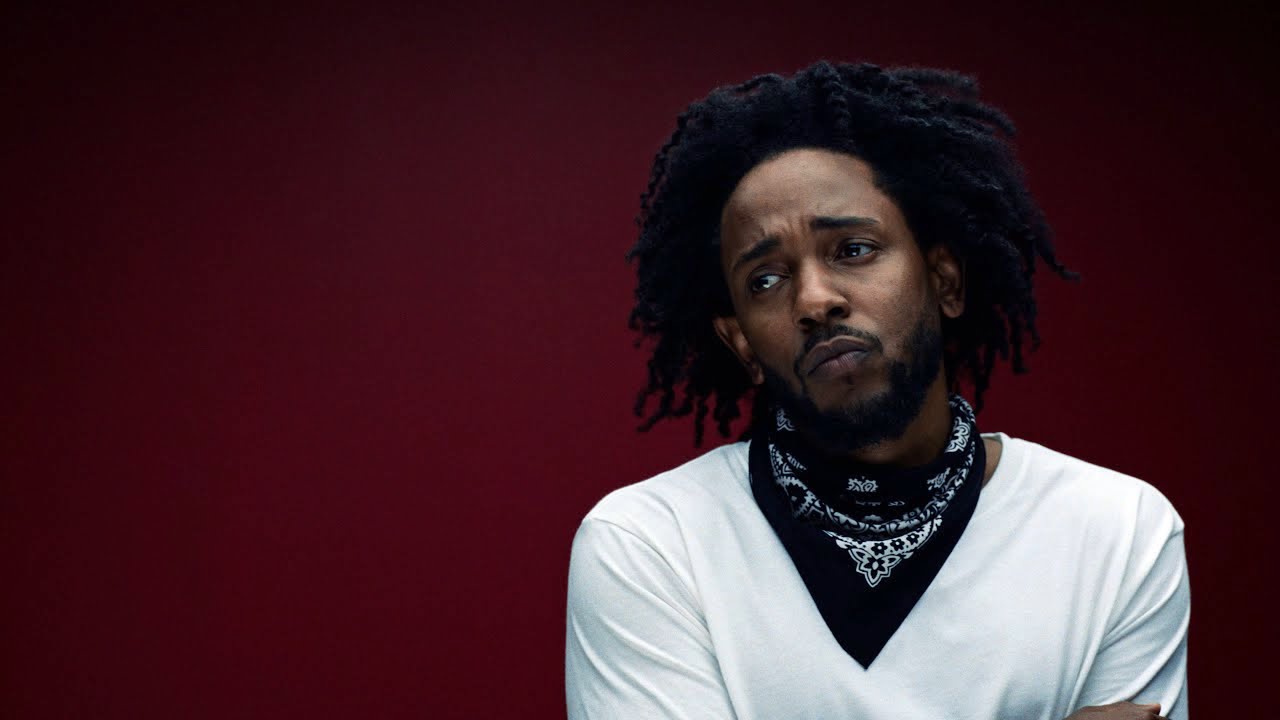
Kendrick Lamar: The Heart Part 5
All photo credits for this article are from The Heart Part 5 Music Video
22nd June 2023
Kendrick Lamar's Grammy award winning single, "The Heart Part 5", was released on 8th May 2022, making it his first solo release in 5 years. Just days after this surprise release, Kendrick would release his fifth studio album "Mr. Morale & The Big Steppers".
"Mr. Morale & The Big Steppers" is arguably Kendrick's most introspective and confessional work: inviting the listener into Kendrick's psyche through a series of therapy sessions delivered as theatrical play. In many ways, it is a chaotic concept album that attempts to bring to surface the hidden experiences that subconsciously consume our mental health; from self-doubt and deep depression, to broken families and generational trauma. It is a musically unconventional hip hop album that incorporates elements of jazz, musical theatre, classical minimalism, and choral music throughout - all of which perfectly blends with Kendrick's compelling storytelling, complex rhyme schemes, flows and lyricism.
The album was met with critical acclaim for its thematic scope and enduring creativity, also winning a Grammy Award for Best Rap Album of 2022. However, my intention for this article is to discuss "The Heart Part 5"! So let's return to that and leave my thoughts on "Mr. Morale & The Big Steppers" for another time.
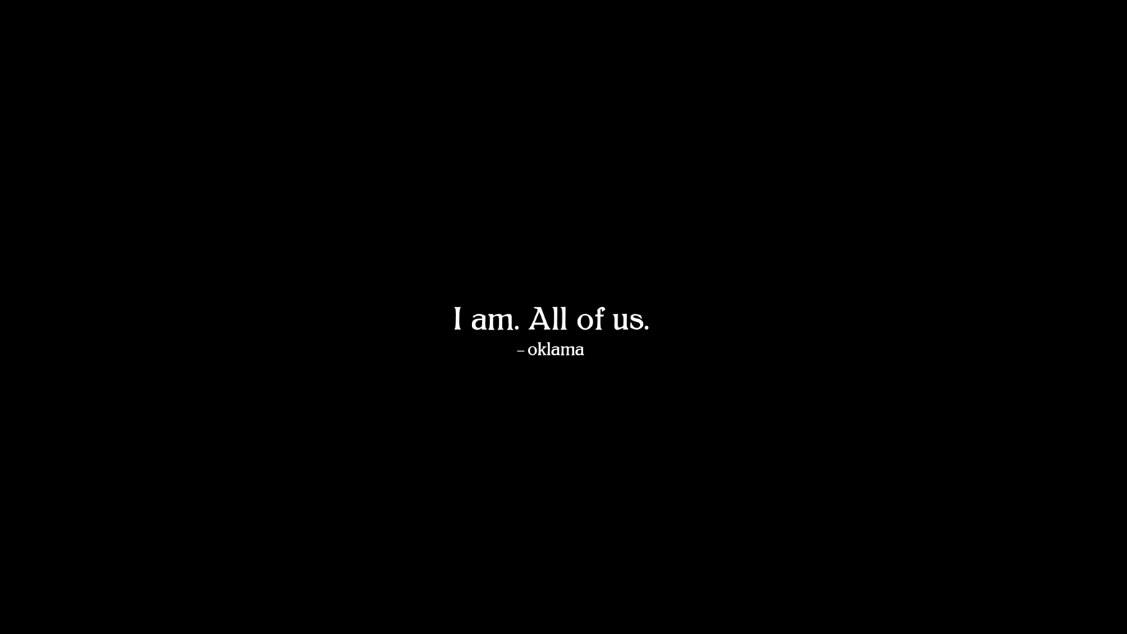
It may be easy to dismiss "The Heart Part 5" as a throwaway single, perhaps a marketing ploy to garner attention for his monumental return in "Mr. Morale & The Big Steppers". But to think in this way would be a big mistake. Like all singles released under the "Heart" series, they are opportunities for Kendrick to share his heart's deepest thoughts and feelings, and "The Heart Part 5" here is no different. Kendrick offers a piercing social commentary on the current state of African-American culture by confronting its flaws and weaknesses, challenging the many aspects that have long caused its downfall, and ultimately finds hope and composure in the face of adversity.
"The Heart Part 5" starts immediately with a combination of elegant chords, funky-drum patterns and a thumping bassline - instrumentals that originate from Marvin Gaye's 1976 classic single "I Want You". The soulful-disco rhythms are practically identical, wherein Kendrick's ability to rap over this beat is nothing but outstanding. By borrowing Marvin's instrumental, Kendrick naturally inherits the passionate tempos and yearning melodies of "I Want You" to support the seriousness of his song's subject matter.
Marvin Gaye's original was inspired by his then girlfriend Janice Hunter; a passionate ballad about longing and unyielding desire. But unlike Marvin, Kendrick does not write his love letter to a woman, but to what he refers to as the "culture", that of his African American community. It is a complex relationship that parallels that of a man and woman in love, fraught with tension and marred by its opposites: unrequited love, intense hatred and yet the need for acceptance. The first verse starts immediately with a fiery meditation on the internal strifes and discord within Black America.
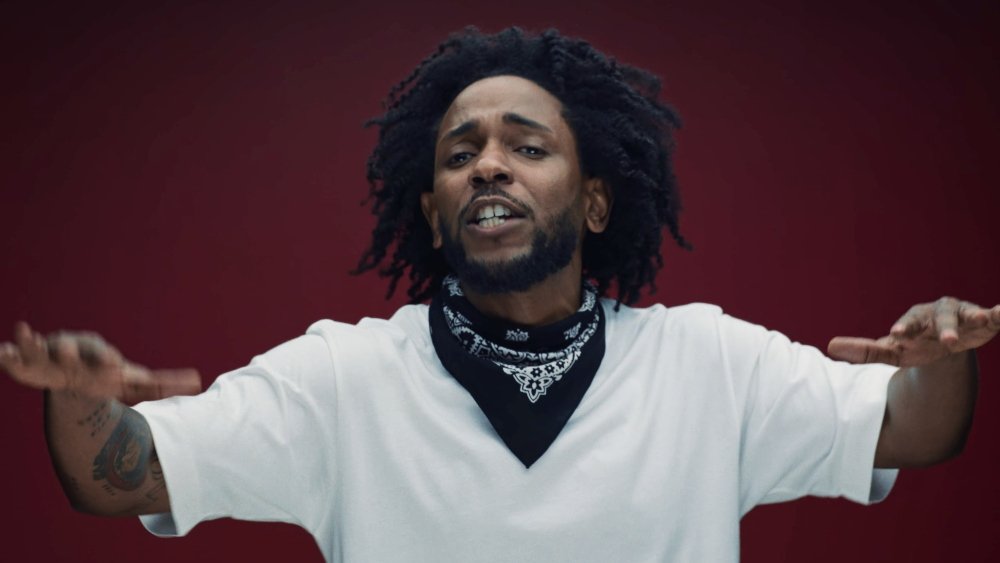
I come from a generation of pain, where murder is minor
Rebellious and Margielas'll chip you for designer
...
Desensitized, I vandalized pain
Covered up and camouflaged
Get used to hearin' arsenal rain
...
... that's culture
...
Twenty-three hour lockdown, then somebody called
Said your lil' nephew was shot down, the culture's involved
...
Get out and get his brains blown out, lookin' to buy some weed
Car wash is played out, new GoFundMe accounts'll proceed
A brand-new victim'll shatter those dreams, the culture
...
It is the internalised hypocrisy, normalised violence, and self-sustaining trauma that keeps the "culture" trapped through generations; past, present and future. But of course, Kendrick is no stranger to the systemic barriers characterised by institutionalised racism and social conditioning that weigh heavily on the individual's ability to exist in America.
Kendrick's stream of consciousness is charged with frustration, disappointment and sadness. But despite all the faults and flaws of the "culture", Kendrick does not walk away, and continues to hold a deep love and desire for its acceptance and respect. The chorus, a perfect interpolation of Marvin's original, imparts the seriousness of his grief. It carries the heartache of love unreciprocated and a sense of his own failure to address the imperfections of his own community.
...
But I want you to want me too (I want, I want, I want, I want)
I want the hood to want me back (I want, I want, I want, I want)
I want the hood
Look what I done for you (Look what I done for you)
Look what I done for you
...
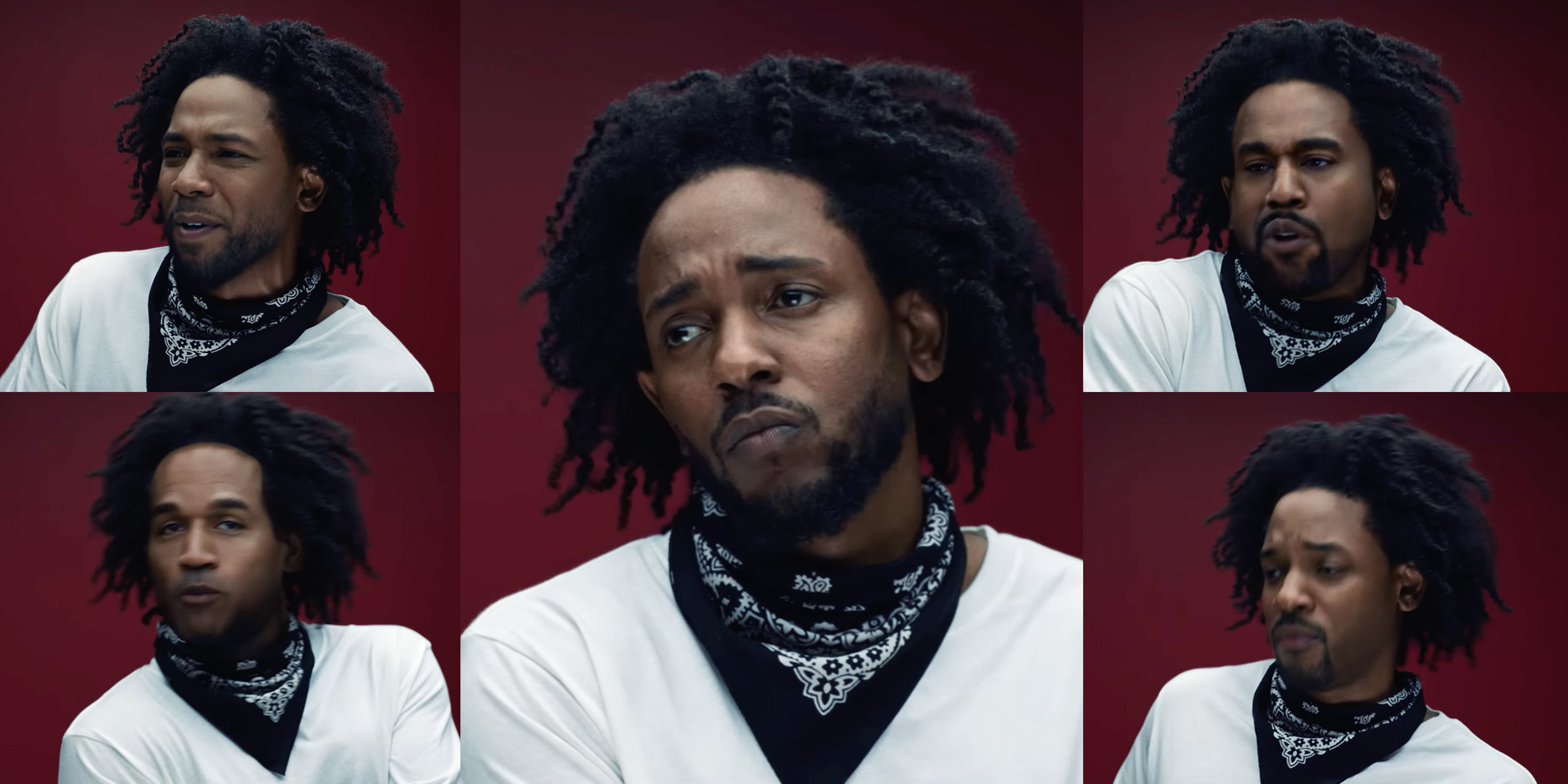
Jussie Smollett (top left), O.J. Simpson (bottom left), Kendrick Lamar (middle), Kanye West (top right), Will Smith (bottom right)
At this point, it is worth referring to the single's music video, which opens with the line, "I am. All of us.", pointing to the interconnectedness of the African American experience but also alluding to the moral responsibility for all people. The music video proceeds with Kendrick staring into the ether whilst rapping in front of a deep red background.
It is during the second verse that the tragic significance of the opening lines, "I am. All of us.", start to reveal itself to us. Here we see Kendrick literalising the opening lines by morphing into several prominent African American celebrities who each embody and reflect the flaws of the "culture" in their own way. Its innate tendency for violence (O.J. Simpson's murder of his former wife), paranoia and distrust with one's inner circles (Kanye West's bipolar disorder), fabricated lies and the propensity for victim mentality (Jussie Smollett's staging of a false hate crime) and the hidden trauma that unexpectedly surfaces through erratic behaviour (Will Smith's Oscars outburst).
Despite being celebrities with fame and fortune, it appears that even they are unable to escape the cultural ills and generational trauma that all other African Americans are shackled by. Is destructive behaviour and suffering the inevitable fate for all those from the "culture", including Kendrick himself?
...
Friends bipolar, grab you by your pockets
No option if you froze up, always play the offense
Niggas goin' to work and sellin' work, late for work
Workin' late, prayin' for work, but he on paperwork
...
But that's the culture, crack a bottle
Hard to deal with the pain when you're sober
By tomorrow, we forget the remains, we start over
...
Our foundation was trained to accept whatever follows
Dehumanized, insensitive
...
In the land where hurt people hurt more people
Fuck callin' it culture
...
Kendrick's inherent connection with his community is clearly the driving force behind his compassion, but his radical empathy is also his greatest source of anguish. His frustration and despair stems from the social injustices in America but even more so by the perpetual cycle of violence within the community that no one seems to be able to escape. How can you help others when you can't even help yourself? His innate love for his people coupled with his inability to enact change evidently causes a deep conflict at the very core of his being. He is neither able to walk away, nor do anything about the situation but must simply watch his beloved "culture" destroy itself.
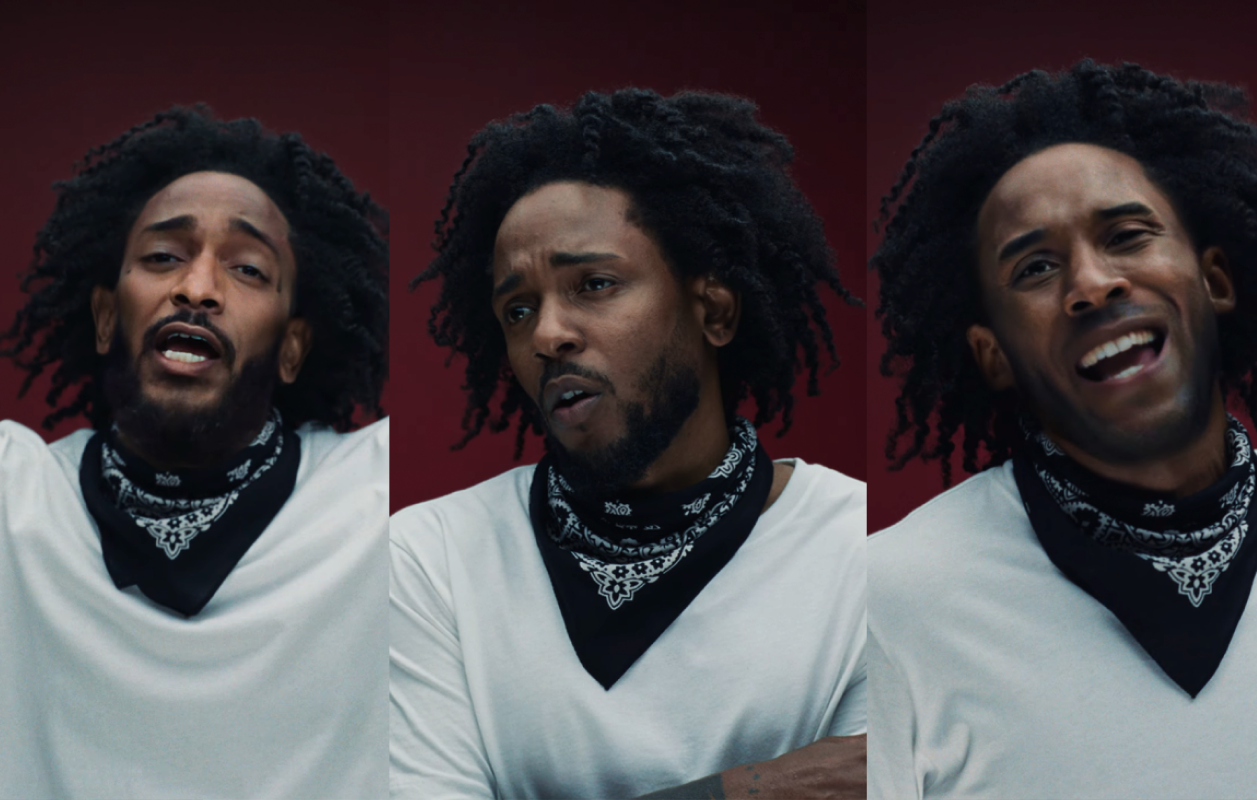
Nipsey Hussle (left), Kendrick Lamar (middle), Kobe Bryant (right)
But it is the final third verse, where Kendrick's creative force is put on full display and intensified by a heart-stopping message of hope. Just as the opening lines can be used to invoke the tragic nature of the "culture", it can also be used to call upon the wisdom shared by those long gone. Here, Kendrick asks to "take the drums out", stripping back the music to its most essential bass line before taking three breathes and continuing.
As if channelling the spirits of the late Kobe Bryant (the NBA legend who died in a helicopter crash in 2020) and Nipsey Hussle (the much respected LA rapper who was shot and killed in 2019) by literally morphing into them, he continues and asserts that life is a continuous journey of learning and growth made of infinite opportunities for goodness. Though both were imperfect in their lives and both died seemingly pointless deaths, should they feel resentful for their lives being cut short? Should they regret the good they did for others? Kendrick suggests that our righteousness will always prevail even when we no longer exist. But the most heart-wrenching part of the final verse is when Kendrick morphs into Nispey Hussle and comforts Nipsey's family and fans, ensuring them that he is in heaven, encouraging them to continue his legacy of community work and social activism, and forgiving his killer.
...
I completed my mission, wasn't ready to leave
But fulfilled my days, my Creator was pleased
I can't stress how I love y'all
I don't need to be in flesh just to hug y'all
The memories recollect just because y'all
...
And Sam, I'll be watchin' over you
Make sure my kids watch all my interviews
Make sure you live all the dreams we produce
Keep that genius in your brain on the move
...
Look for salvation when troubles get real
'Cause you can't help the world until you help yourself
...
The song is a deeply honest survey of the harsh realities of the "culture"; the social inequalities, gang violence, substance abuse and psychological trauma that reinforces its self-destructive character. But despite the overwhelming adversity facing it, Kendrick knows that goodness triumphs and points to those who have built a legacy of righteousness. It is a multilayered project, addressing the spiritual struggle of the individual in the face of moral, social and political turmoil with a message of hope, empathy and perseverance. It is clear that the entire song is as much of a reminder for Kendrick, as it is for us. In order to help the world, we must first help ourselves.
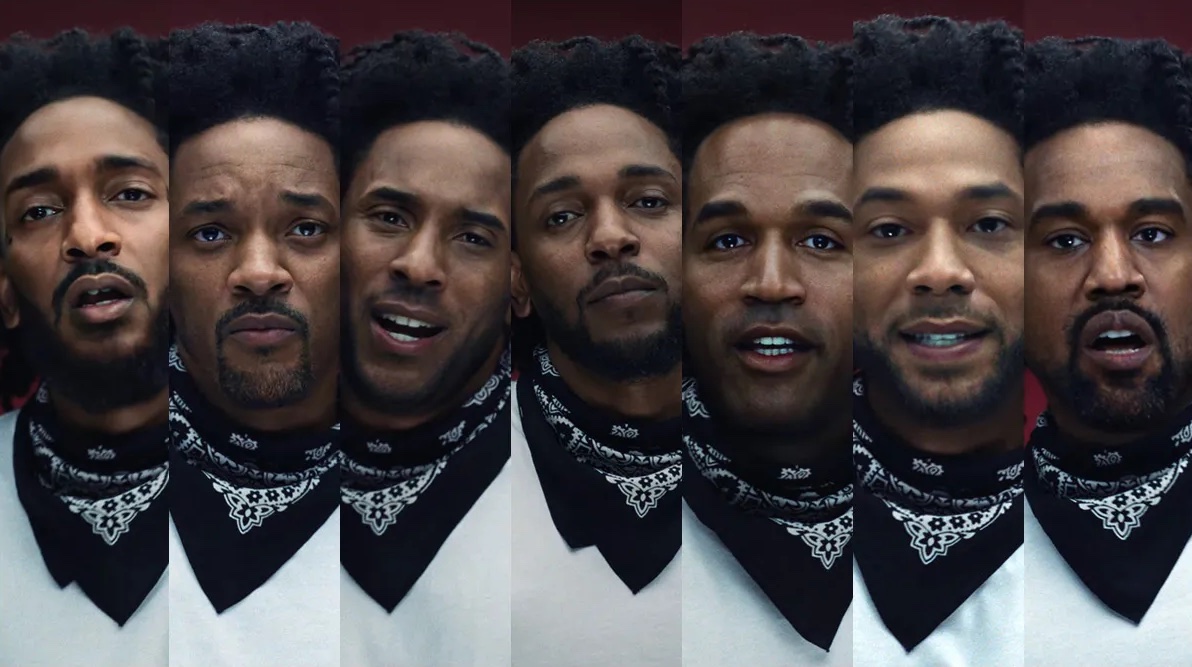
From left to right: Nispey Hussle, Will Smith, Kobe Bryant, Kendrick Lamar, O.J. Simpson, Jussie Smollett, Kanye West